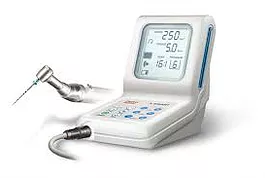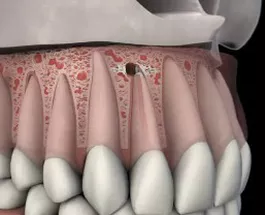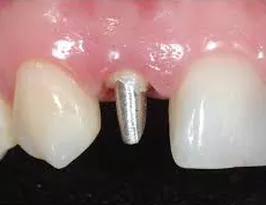Contact us

(*Required fields)
Please fill in ALL of the required information to submit this form.
Endodontics is the branch of dentistry concerning dental pulp and tissues surrounding the roots of a tooth. What is visible to us is the beautiful, pearly white part of the teeth, the enamel, which enhances our smiles. But there is much more to our teeth than meets the eye. Beneath the enamel, there is a layer of dentin and then deep inside, lies the soft, vital part of the tooth, the pulp, containing blood vessels and nerves. At times, due to certain conditions, pulp tissue gets infected, leading to severe pain.
Endodontic treatment is done when the pulp, the soft tissue inside the root canal becomes inflamed or infected. The reasons for infection might be-
As the pulp gets infected, the signs and symptoms may manifest in one or more following ways-
When a patient with symptoms of an infected or inflamed pulp comes to our clinic, first and foremost, our endodontists analyze the symptoms, verify by radiological findings and then proceed for one or more of the following treatments, to alleviate pain and infection.

At TnSS, we use the advanced endodontic technology, with latest rotator equipment, apex locators, surgical operating microscope and digital radiography. Automated RCT is safer, quicker and provides excellent outcome with less discomfort.
The advantage of single sitting RCT over traditional multiple visits RCT are-


A post and core is a prosthetic restoration, used to sufficiently build uptooth structure of an endodontically treated tooth, for future restoration, i.e. crown. It is done when there is not enough tooth structure to properly retain the crown. Post is that part which is placed within the root space of the tooth, after RCT, protruding a couple of millimeters. It can be metallic or non-metallic like high strength zirconia. It serves to anchor the core to the tooth and also redistributes stresses down onto the root, thereby reducing the risk of coronal fracture. The core replaces the missing tooth structure. It is build up with high-quality materials. A great deal of crown stability depends on the amount of tooth structure beneath it. If there is a very little tooth, the crown will be easily dislodged by biting forces. In such cases, core rebuilds the tooth, so it is closer to its original dimensions, increasing crown’s stability. Post and Core are indicated when the large crown structure has been lost due to decay or trauma.